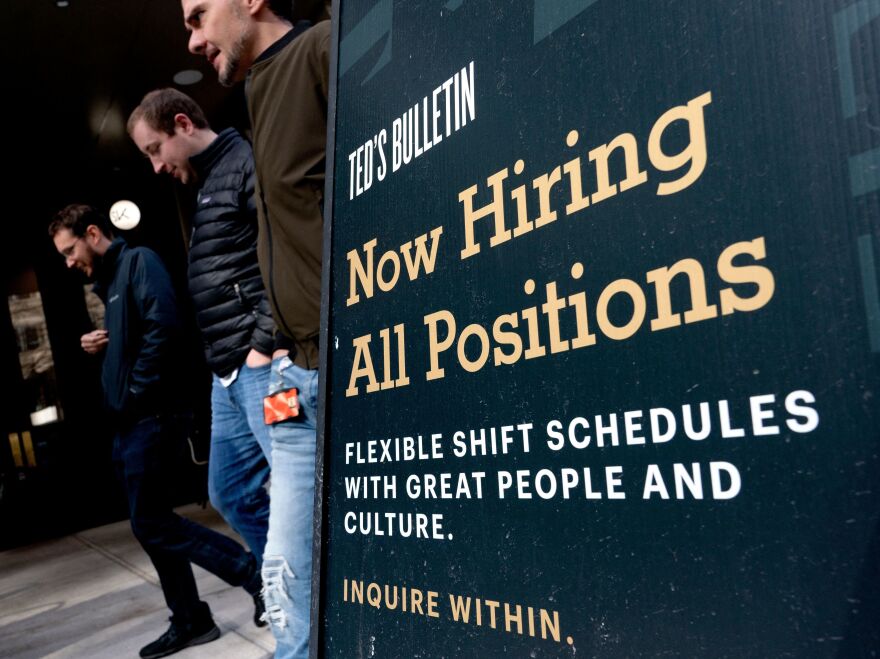The U.S. job market remains red-hot.
Employers added jobs 428,000 jobs in April, extending a remarkable comeback in the labor market. The unemployment rate held steady at 3.6% — matching its lowest level since the start of the pandemic.
The economy has now replaced nearly 95% of the jobs that were lost when the coronavirus hit.
And employers are still keen to hire. Job openings remain at or near an all-time high as businesses struggle to recruit enough staff.
"For people who are out of work and looking, there are lots of job opportunities," Federal Reserve Chair Jerome Powell told reporters on Wednesday.
"Wages are moving up at rates that haven't been seen in quite a long time, so it's a good time to be a worker, looking to either change jobs or get a wage increase in your current job," he added.
The Fed's tricky balancing act
Data released last week showed private sector wages in the first three months of the year were up 5% from a year ago. While that's good for workers, it could carry a potential downside for the economy.
Powell and his colleagues are concerned that employers may offset the cost of higher wages by raising prices, adding to inflation that's already the highest it's been in 40 years.
The Federal Reserve has launched an aggressive effort to curb inflation, raising interest ratesby half a percentage point on Wednesday, and signaling additional rate hikes are likely in June and July.

The Fed hopes to cool the sizzling job market gradually, without triggering a big jump in unemployment. But investors worry the Fed's action will tip the economy into recession.
Deep uncertainty about the direction of the economy sparked one of the worst selloffs in the stock market since 2020 on Thursday, with the Dow Jones Industrial Average tumbling more than 1,000 points.
The labor market is showing signs of cooling
April was the 12th month in a row that the economy added more than 400,000 jobs.
Revised figures show that employers added 714,000 jobs in February and 428,000 jobs in March.
"Given that the labor market has made such tremendous progress back towards 2019 levels, I think what we're going to see going forward is more of a normal pacing," said Nela Richardson, chief economist for the payroll processing company ADP.
In the twelve months before the pandemic, the U.S. added an average of 198,000 jobs per month.
The tight job market could get additional breathing room if more people who've been on the sidelines come into the workforce. But 363,000 fewer people were in the labor force in April than the month before.
Copyright 2022 NPR. To see more, visit https://www.npr.org. 9(MDA4MDA0NzIzMDEzMTM3NjQ4NzBhNjYxZg004))



